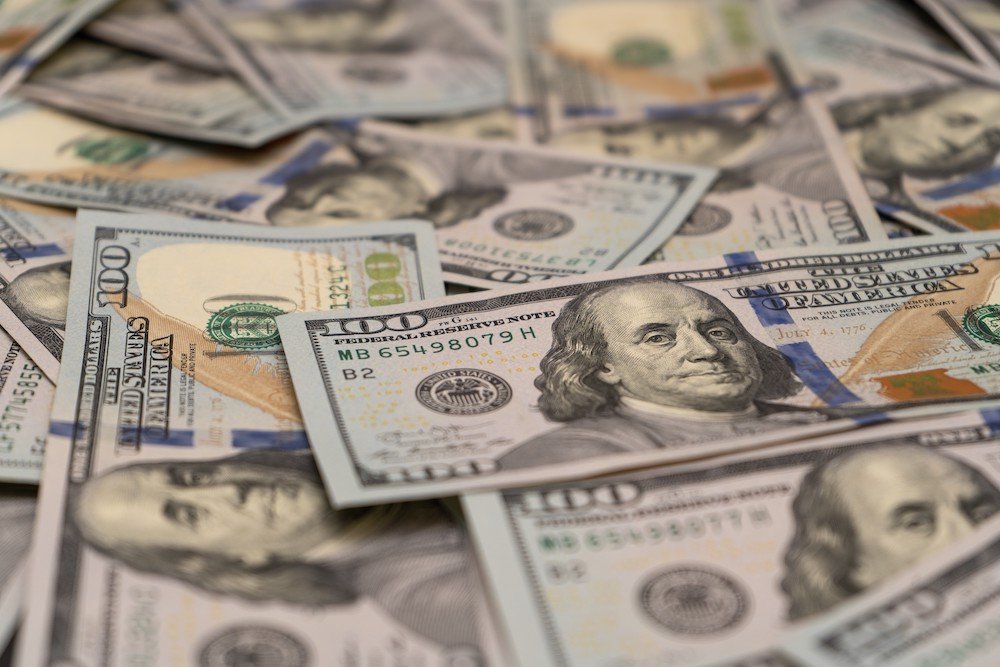Can a $10 Billion Wealth Cap Foster Economic Equity?
If Elon Musk decided to take New Year’s Day off and watch football bowl games, and if he had all of his money invested in relatively safe bonds paying 5%, he would have gone to bed that night $30 million richer. That’s based on Forbes magazine’s $240 billion estimate of his December 31 wealth.
After their divorce, Jeff Bezos's former wife, McKenzie Scott, said she would donate nearly all of the $38 billion settlement she received to worthy causes. At last report, she had donated more than $16.5 billion. Now, according to Forbes, her net worth is only…..$40 billion.
The Escalating Wealth Gap
Money makes money. And once you reach a level of wealth where you can have all the toys wealth can buy, it’s hard to find a way to spend or invest more. There comes a point where it’s difficult not to keep increasing your wealth, no matter how much you spend or give away.
In 2000, the net worth of the richest 20 on Forbes magazine’s billionaire list totaled $450 billion. In 2023, the net worth of the richest 20 totaled $1.9 trillion. The richer are getting much richer, and with that money they are not just buying things and making investments, they are buying ever-increasing power to influence public opinion and government decisions, decisions as local as zoning laws or as global as Musk’s control over the global square we once knew as Twitter, and Ukraine’s front line communications.
Forbes counts about 750 American billionaires whose cumulative net wealth adds up to about $4.5 trillion. The 2024 U.S. federal budget now being considered by Congress totals less than $1.6 trillion.
Wealth Tax Reform or $10 Billion Cap
In her 2020 presidential campaign, Elizabeth Warren proposed that the roughly 75,000 U.S. households with a net worth of more than $50 million pay a tax of 2 cents on every dollar of net worth above that $50 million, and 6 cents for every dollar above $1 billion.
She calculated that would bring in $4 trillion to the U.S. treasury, enough to pay for universal preschool, daycare, free technical and community college, and a long list of other improvements, including payments on the national debt.
That proposal has been languishing in Congress. The very rich are opposed to it, of course. And they have a lot of political power.
I think I have an even better idea. Let’s cap wealth, at say $10 billion.
What! Confiscation! Destroy incentive! Capital flight!
What Can You Do With $10 Billion?
I’ve done some back-of-the-envelope analysis of what you can do with $10 billion.
$250 million—Buy a NYC luxury apartment, a flat in Paris, and estates in the Caribbean and the Riviera
$250 million—Buy a luxury yacht
$50 million—Buy a new Gulfstream 550 jet
$50 million—Staff, maintenance and repairs of the yacht, jet and properties.
$100 million—Buy fine art and jewelry
$24 million—Living allowance of $2 million a month
$250 million—For anything else I’ve missed
That’s $1 billion. After that, there are no capital expenses, just maintenance. Leaving plenty of money for investments. Or, to buy low-risk stocks and bonds whose interest and dividends would likely pay for all the annual expenses I’ve just listed, and more.
That doesn’t sound like a deal that would kill incentive to create, build or be worth renouncing your U.S. citizenship.
But it would go a long way toward seeing that all Americans would have the opportunity for quality education from pre-K to college, that no American need to go hungry or homeless, or have to worry about losing their savings because of illness.
Diminishing Power of Oligarchs
A wealth cap would have the added value of reducing the political and economic power of the ultra-wealthy whose agenda is, and has been, widening the wealth gap.
Politically impossible? Well, what are the alternatives? Cutting the budget to make the social fabric more fragile? Not investing in ways to keep jobs aligned with technological change? Ignoring the devastation of ever more catastrophic climate change? All so that those with tens of billions in wealth are free to continue to hoard it, and use it to manipulate public opinion and power?
It’s no coincidence that the rise of “populist” movements in the U.S. and elsewhere coincides with the widening of the wealth chasm. It doesn’t take an economist to understand that the financial game board is seriously tilted away from capitalism toward oligarchy, and getting steeper. And it doesn’t take a genius to figure out how to fix it.
The United States is an incredibly rich country. There’s no reason to poor-mouth it or act like paupers when it comes to public policy.
Comments? Criticism? Contact Joe Rothstein at joerothstein@rothstein.net.



What happens when a fun-loving, charismatic, reform-minded Mexican-American billionairess becomes president of the United States and strikes fear in the pocketbooks of a cabal of the rich and powerful?